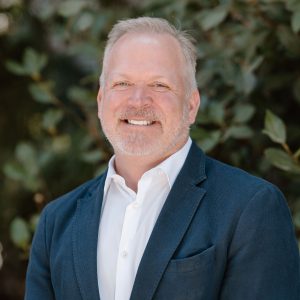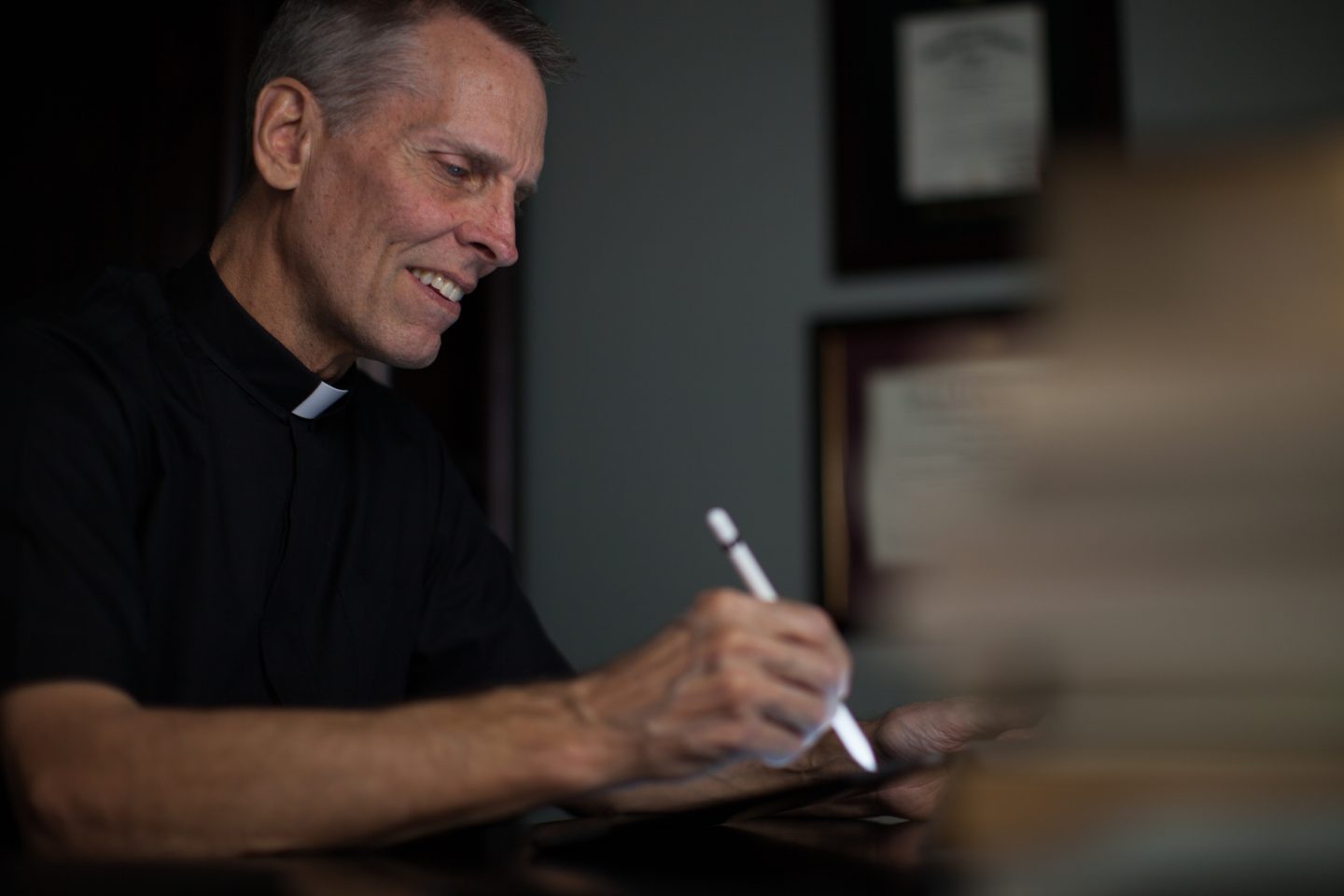As of January 1, 2025, California’s new Senate Bill 1454 (SB 1454) officially went into effect. At its core, this law means that religious nonprofits—like churches and ministries—are now under the oversight of the Bureau of Security and Investigative Services (BSIS).
We know that’s a mouthful of legal jargon, so let’s make it simple.
In plain terms, SB 1454 changes how churches manage their safety and security teams. If your ministry has people serving in a security role—especially those in uniforms or carrying firearms—there are now new requirements for oversight and training to ensure those individuals are protecting your congregation in a legal manner.
These changes may impact your security liability insurance, which makes compliance especially important. Read on for a clear breakdown of what SB 1454 requires and how your ministry can stay protected.
What does SB 1454 require from churches in California?
Here’s the simplest way to understand SB 1454.
If your church pays someone to perform unarmed security – that person, or persons, must now register as a Proprietary Private Security Officer (PSO) to receive proper training and register with the Bureau of Security and Investigative Services (BSIS). When employing or directing the use of firearms, that must be done through a Private Patrol Operator (PPO) structure.
Volunteers are not directly regulated by this bill, but our recommendation is to also provide them the same training as your broader security team.
So why the change?
SB 1454 removed certain exemptions under the Proprietary Security Services Act and the Private Security Services Act that previously applied to charitable/philanthropic organizations (including churches).
We understand this might feel like one more hurdle to doing ministry in California—but just like other changes, we’ve done the homework to help your ministry stay compliant as simply and painlessly as possible.
More importantly, the new training options means your ministry will be more prepared than ever to guard your people. Ministries can now access the same security training that fortune 1000 companies have used for years to protect their own people and operations.
Let’s walk through the practical steps your ministry can take to get compliant fast and equip those who protect your people with the training they need.
Key Definitions
PSE: Private Proprietary Security Employer who employs an unarmed PSO to perform security functions.
PSO: Private Proprietary Security Officer who is employed by a PSE to perform unarmed security functions.
PPO: A Private Patrol Operator is a unique kind of organization that is licensed to perform or sell armed security services.
BSIS: The Bureau of Security and Investigative Services is a California agency that regulates safety and security organizations such as alarm companies, private investigators and security service providers.
Unarmed Security Personnel Are Now PSOs
For most ministries, this is the single biggest shift under SB 1454. If your staff are paid to “keep an eye on things,” those individuals may fall under the Proprietary Security Services Act (PSSA) and need to register with the Bureau of Security and Investigative Services (BSIS) as Proprietary Private Security Officers (PSOs). If so, your church will need to register as a Proprietary Private Security Employer (PSE) as the employer of the PSO.
In short: if someone is paid to perform security functions—monitoring entrances, responding to disturbances, or patrolling the property—they are no longer just a helpful staff member. They legally may now be considered a PSO, and your church their PSE.
Remember: SB 1454 removed a previous exemption for churches and other nonprofits from BSIS oversight. That exemption is now gone. Ministries that employ unarmed staff for safety or security purposes are now held to the same standards as any other organization in California.
This is now the legal minimum for compliance. But we strongly recommend going further to keep your ministry protected.
Recommended Best Practices
After extensive research, both internally and with our partners, here are our recommended best practices from ChurchWest.
Extend training to volunteers.
Even though it is debated whether volunteers are covered by the statute, we recommend having anyone serving in a safety or security role complete PSO training.
- The training itself is valuable and creates a unified standard.
- It ensures all team members—paid or unpaid—are on the same page.
- It minimizes risk by keeping your church out of the gray area of working with untrained volunteers.
Don’t hide behind loopholes.
Paying someone to perform security work and then not identifying them as security (for example, omitting uniforms to avoid regulation) can backfire badly. If a regulator or court looks at function rather than title—and they probably will—it could expose your ministry to serious legal and insurance risk.
Paint with a broad brush.
Rather than trying to split hairs about who does or doesn’t count as “security,” it’s far safer to register and train broadly. Treat everyone serving in a protective capacity as part of your official safety ministry. It keeps your team unified, reduces liability, and demonstrates good faith compliance if questions ever arise.
In short, SB 1454 closes the gap between “church safety team” and “regulated security operation.” The best path forward is transparency, training, and consistency—building a culture of compliance and preparedness that protects both your people and your ministry.
When Firearms Are Involved: Understanding the PPO Requirement
Everything we’ve covered so far—PSEs and PSOs—applies to unarmed security. But once firearms enter the picture, the rules change completely.
If your ministry authorizes, directs, or even tacitly allows someone to carry a firearm as part of their duties, your church has entered the world of Private Patrol Operators (PPOs).
What Is a PPO?
A Private Patrol Operator is a licensed security provider recognized by the Bureau of Security and Investigative Services (BSIS) under California Business and Professions Code § 7582.1.
A PPO license allows an organization to perform armed security services—either as a business serving clients or for the protection of its own people and property. In both cases, the organization is furnishing or supervising armed security personnel, and therefore must comply with the same state licensing and training requirements.
If your church pays anyone to carry a firearm for protection, that is absolutely PPO territory. Paid, armed employees are no longer “safety team members”—they are professional security officers, and your church must either:
- Contract with a licensed PPO to provide those services, or
- Obtain a PPO license and employ armed personnel directly.
Working with a PPO
For most ministries, contracting with a licensed PPO is more practical than becoming a PPO themselves. The third party PPO then handles all state licensing, background checks, training, and insurance requirements.
When selecting a PPO, be sure to:
- Verify Licensing: Confirm the PPO’s active license status on the BSIS website.
- Review Insurance: Ensure they maintain at least $1 million in general liability coverage.
- Include Proper Contract Language: Look for indemnification clauses and require a certificate of insurance naming your church as an additional insured.
- Clarify Scope: Clearly define when and where PPO officers will serve, how they will interact with staff and congregants, and what their chain of command looks like during emergencies.
- Be Aware of Indemnification: Contracts from security companies often are worded to place the burden of indemnification on the ministry – meaning the church has to insure the vendor on their own insurance. We highly recommend reversing this relationship and placing the expectation on the security vendor to insure the ministry. Your ChurchWest agent can review your contractual insurance requirements on your behalf.
For more guidance, read our full guide to hiring a security company for your church.
Our Trusted Partner for Church Security Compliance
For ministries that want help navigating these new requirements, we recommend working with The Shepherd 360 Security, a trusted California-based security vendor that specializes in helping churches and nonprofits achieve BSIS compliance.
Shepherd 360 can assist your ministry in two key ways:
- PPO Compliance and Armed Security Services: Shepherd 360 is a licensed PPO in California and can provide professional, insured security officers or help you structure compliant armed coverage for your campus.
- PSO/PSE Training and Certification: For unarmed security personnel, Shepherd 360 offers training that meets BSIS requirements for Proprietary Private Security Officers and Employers, ensuring your entire team—paid staff and volunteers alike—is trained to the same standard.
By partnering with a ministry-minded provider like Shepherd 360, your church can confidently meet both the legal and practical requirements of SB 1454—without having to become a security expert overnight.
Learn more at theshepherd360.com or call (657) 360-4281.
When to Consider Becoming a PPO Yourself
For larger ministries with ongoing, full-time security needs—such as multi-campus churches or event-heavy ministries—it may make sense to pursue PPO licensing directly. This involves:
- Applying for a BSIS PPO license under § 7582.1
- Appointing a Qualified Manager who passes the BSIS exam
- Completing DOJ and FBI background checks
- Maintaining required insurance coverage
- Registering and training all employees
However, this process is extensive and generally practical only for churches operating at a professional security level. For more information on this process, we recommend going to BSIS directly.
Volunteers With Firearms: The Legal Gray Area
Where things become more complicated is with volunteers who carry firearms.
Under current law, this area remains largely undefined. There is no clear statutory language that explicitly governs armed volunteers serving on behalf of a church. However, the guiding legal principle is simple: courts focus on function and agency—whether the person was acting at the direction of the church.
If your ministry is directing, organizing, or supervising volunteers who carry firearms as part of a safety or security team, then those individuals may be viewed as acting under the church’s authority. If an armed volunteer were ever to discharge their weapon—especially if bodily harm occurred—investigators and courts would look at the relationship between that individual and the church. The key questions would be:
- Did the church know the person was armed?
- Was the person encouraged, assigned, or authorized to carry a weapon?
- Was the person acting under church supervision or direction?
If the answer to any of those is “yes,” then the volunteer will likely be treated as an agent of the church—and the ministry could face the same liability exposure as if that person were a paid employee.
Our Recommendation
Because this is such a legal gray area, the safest and most transparent approach is to contract with a licensed PPO whenever your church wishes to supervise or direct the use of firearms on campus.
A licensed PPO brings oversight, training, and insurance coverage that protect both the individual carrying the firearm and the church itself.
Common Questions about Compliance
The following is a collection of the questions we are hearing from California churches and ministries who are concerned about SB 1454 compliance. For further assistance, we recommend contacting your ChurchWest agent.
What does SB 1454 require from churches in California?
SB 1454 removes the previous exemption for religious and nonprofit organizations. Now, any employee providing security services must comply with Bureau of Security and Investigative Services (BSIS) requirements. Unarmed security employees must register as Proprietary Private Security Officers (PSOs), and churches using armed staff must operate under a Private Patrol Operator (PPO) license or contract with a licensed PPO.
Does SB 1454 apply to both employees and volunteers?
SB 1454 specifically applies to employees. Volunteers are not directly regulated by the law, but if they perform functions identical to security employees, courts may treat them as such.
What’s the difference between a PPO and a PSO, and which one applies to my church?
PSO: An unarmed security employee hired by the church, registered with BSIS, and trained to fulfill security duties.
PPO: A licensed entity that employs and supervises armed or unarmed security guards. Churches need a PPO license (or a contract with a PPO) if they use armed staff.
How do we know if someone is considered “security” under the law?
BSIS and the courts look at function, not just titles. If someone performs tasks typically associated with security—such as monitoring access, patrolling property, or responding to threats—they may be considered security personnel.
Understanding Volunteers vs. Employees
Can volunteers legally serve on a Safety Team?
Yes, but only in limited roles such as observation, hospitality, and communication. Once volunteers begin performing defined security functions, risk increases significantly.
If we give gift cards, meals, or stipends, does that make a volunteer an “employee”?
Providing any kind of financial compensation can trigger employee status. Read more here on our guide to classifying employees.
Can volunteers wear radios, badges, or matching shirts without triggering compliance?
Visual identifiers can create the appearance of being official security. This increases liability risk and could invite regulatory scrutiny.
Can volunteers patrol the parking lot or monitor doors without being classified as security?
If volunteers are simply present and welcoming, they are likely fine. If they are assigned to patrol, monitor, or intervene, they may be acting as security.
Do we need to register volunteers as PSOs?
No. PSO registration only applies to employees. However, if you want volunteers to act in security roles, it may be safer to hire them as employees and register them as PSOs—or outsource to a PPO.
Questions about Armed Personnel
Can church members with CCW permits serve on our Safety Team?
A CCW is for personal defense. Volunteers should first check with their local issuing authority about carrying while volunteering. If the church directs or supervises any armed activity, best practice is to operate through a licensed PPO (or employ armed personnel under your own PPO), not a volunteer structure.
What’s the difference between a CCW and a BSIS firearms permit?
- CCW: Issued for personal concealed carry.
- BSIS Firearms Permit: Required for security personnel employed under a PPO. Volunteers cannot hold this role.
If someone is armed on our team, does that automatically mean we need a PPO license?
If you employ armed personnel, you must operate under a PPO or contract with a PPO. For volunteers in non-security positions who have a CCW, consult your local issuing authority. If your church directs or supervises armed activity, best practice is to work through a licensed PPO.
What happens if an armed volunteer uses force during an incident?
The church could face severe liability: criminal charges against the individual, and civil lawsuits. Typically, an insurance policy’s response depends on if you are acting in a lawful manner. Our entire purpose of educating ministries on this new law is for churches to make a wise decision.
Law Enforcement Officers (Active & Retired)
Can active law enforcement officers serve on our Safety Team when they’re off duty?
Active Law Enforcement Officers (LEO’s) are welcome to volunteer and go through the same training as the rest of your safety team. We recommend not paying for these services as an employer relationship would be better handled as part of a formal PPO license. Read more in our full guide on working with LEO’s.
Can retired law enforcement officers carry and serve as church security?
Retired LEOs may carry under certain provisions, but if they are compensated, the church must contract with a PPO or obtain its own PPO license.
Can law enforcement officers oversee or train our armed volunteers?
Armed supervision must run through a PPO. PSO training must be completed through BSIS-approved vendors or instructors. While LEOs can assist with safety awareness, that doesn’t replace required BSIS training or a PPO structure for armed operations.
If we pay law enforcement officers to provide security, how should that be structured?
They must be employed and supervised by a licensed PPO. Outsourcing through services like Shepherd360 ensures compliance.
Can church members with CCW permits serve on our Safety Team?
Not in a formal security capacity. A CCW is for personal defense, not for serving as a church-appointed armed guard. Any use of firearms should be formalized through a PPO relationship.
What role can law enforcement realistically play without creating compliance risks?
They can advise your church on situational awareness, de-escalation, and emergency response—but not manage, train, or function as armed church security.
Insurance & Liability
How should we disclose our safety/security practices to our insurance provider?
Be transparent. Disclose the existence of any safety or security team and the roles they perform. Hidden practices can create coverage gaps.
What kind of liability could our board face if we’re out of compliance?
Board members could face personal liability for negligence in governance if the church knowingly operated outside of SB 1454 requirements.
What are the real-world consequences if something goes wrong and we’re not compliant?
Consequences include criminal charges for individuals involved, civil lawsuits against the church, reputational harm, and significant financial losses.
Your Next Steps
With SB 1454 now in effect, California churches need to move from informal safety teams to clear, compliant structures. This isn’t about red tape—it’s about protecting your people, your mission, and your peace of mind.
Ignorance of the law won’t protect your ministry if something goes wrong. But the good news is that compliance doesn’t have to be complicated. With the right partners and a thoughtful plan, your church can stay safe, covered, and confident.
For guidance on how these changes may affect your insurance coverage, your ChurchWest agent is always here as a resource. And when it comes to security compliance and training, we recommend working directly with The Shepherd 360 Security—a trusted, ministry-minded partner that provides BSIS-approved PPO services and PSO/PSE training designed specifically for churches.
Don’t wait until there’s an incident to find out where the gaps are. Take a proactive step today—talk with your ChurchWest agent about your coverage and visit theshepherd360.com to start your compliance journey with experts who understand ministry.






